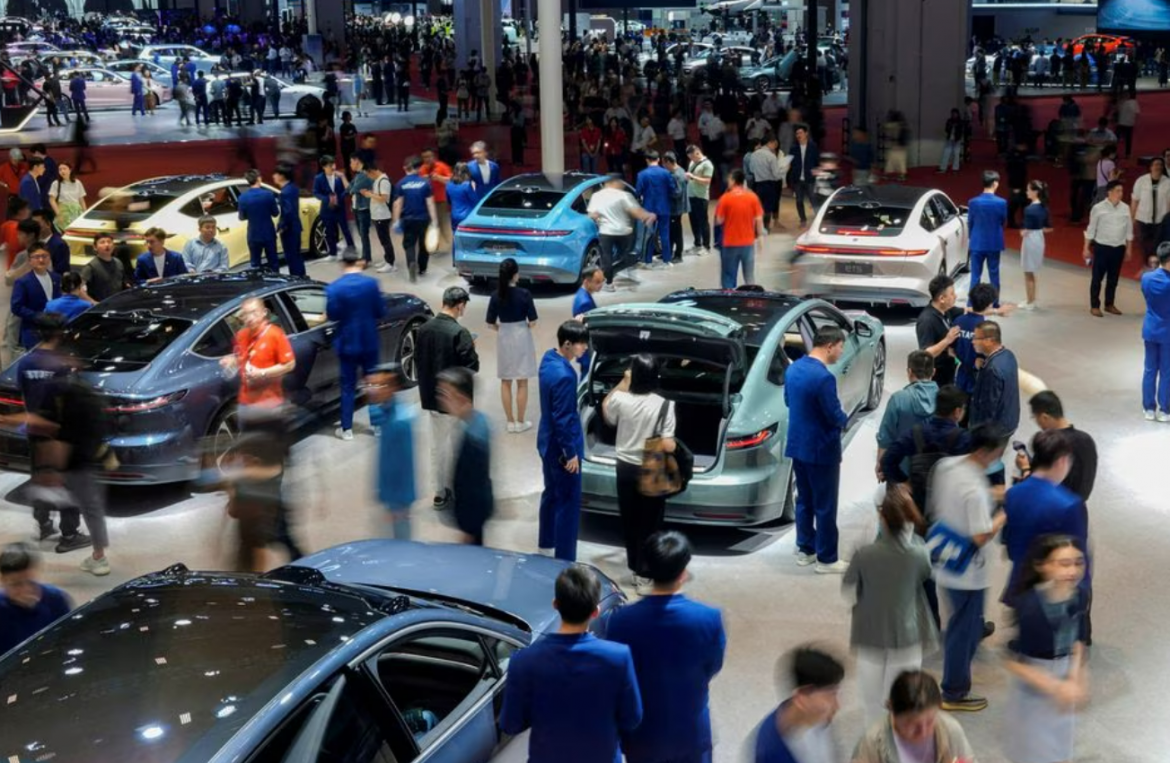In a notable downturn, China’s new energy vehicle (NEV) sales witnessed a significant drop of 38.8% compared to the previous month, marking the first decline since August 2023. Despite efforts led by Tesla to stimulate demand through discounting, the world’s largest auto market experienced faltering consumer interest, as highlighted by industry data.
Market dynamics and trends
While vehicle sales, including exports, saw a year-on-year increase of 47.9%, the total sales plummeted by 22.7% from December, reflecting a noticeable shift in market dynamics. NEV sales, constituting 29.9% of total sales, displayed a robust growth of 78.8% compared to the previous year.
Factors contributing to the decline
The decline in NEV sales can be attributed to various factors, including a protracted housing downturn and market uncertainties in the wake of global economic shifts. Despite continued efforts to stimulate demand, the automotive industry faces challenges posed by changing consumer preferences and economic conditions.
Impact of policy changes
Policy changes, such as the cessation of subsidies and tax cuts, have also influenced consumer behaviour, contributing to the subdued performance in January. Additionally, the timing of the Chinese New Year in January last year led to shortened business days, further affecting sales performance.
Export dynamics and challenges
While exports accounted for a significant portion of total sales, China’s growing prominence as a vehicle exporter has led to tensions with trading partners, prompting the commerce ministry to encourage the NEV industry to respond actively to foreign trade restrictions.
Competitive landscape and market response
In response to slowing demand and intensifying competition, Tesla implemented price reductions on certain models in China, aiming to maintain market competitiveness and stimulate sales. Rivals like BYD and Geely experienced fluctuations in sales, with both witnessing declines compared to the previous month.
Performance of key players
Tesla’s biggest Chinese competitor, BYD, reported a decline in NEV sales, while Geely, which encompasses brands like Zeekr and Lynk & Co, faced mixed results. Other players in the EV market, including Aito and Li Auto, experienced varying degrees of performance, influenced by market dynamics and competitive pressures.
Volkswagen’s market expansion
Volkswagen’s joint ventures in China saw a significant increase in NEV sales, attributed to the popularity of its ID.3 hatchback. The German automaker’s strategic pricing adjustments have contributed to its success in penetrating the Chinese market, showcasing the importance of pricing strategies in driving sales growth.
The decline in China’s NEV sales underscores the evolving dynamics of the automotive industry, influenced by changing consumer preferences, economic conditions, and regulatory frameworks. As market players navigate these challenges, strategic pricing adjustments, market expansion efforts, and policy responses will shape the trajectory of the NEV market in China and beyond.



